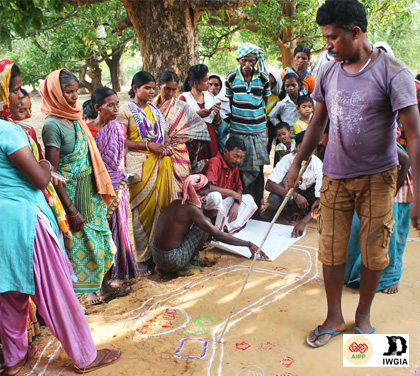In September 2020 the Asia Indigenous Peoples’ Pact (AIPP) and International Work Group for Indigenous Affairs (IWGIA) through a joint submission to the UNFCCC, called for the full consideration and engagement of Indigenous Peoples in climate action. The call reiterates a holistic view in making the Paris Agreement work and responsive not only to climate change but even in the midst of pandemic.
“The climate crisis is not just an environmental and scientific matter. It is also a social, political and cultural agenda. In this regard, climate action should take account of our distinct worldviews and lifeways, rather than relying only on so-called science. What is climate science and from where does that knowledge come? The roots of our knowledge, or science, derive from our culture and values. Our values and knowledge are deeply entangled with our social, environmental and political ecology. They have been sustained for centuries through balancing harmony between nature and human beings. However, climate action is ignoring our lifeways and values. We need synergies between western lab-based science and our indigenous knowledge to combat the climate crisis. This requires a paradigm shift with ‘technology transfer’ safeguarding those distinct sciences.”
- NEFIN National Coordinator Tunga Rai Bhadra
The submission reflects the experiences of Indigenous Peoples from the Asia region and beyond. It presents a range of specific and implementable recommendations directed to State Parties and the UNFCCC Secretariat. The submission also reflects views and recommendations from the Nepal Federation of Indigenous Nationalities (NEFIN) and Promotion of Indigenous and Nature Together (POINT) as voices of Indigenous Peoples from Nepal and Myanmar, respectively.
Read the full submission here. For Spanish version click here.

